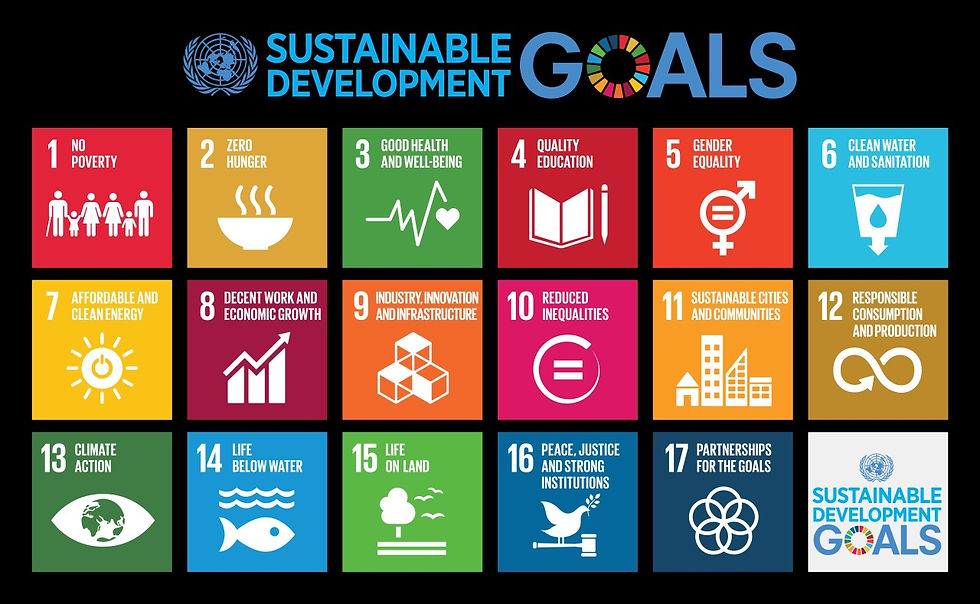Goal#5
- Dec 18, 2017
- 2 min read
As the year ends, your calendar must be getting busy with holiday parties. The office parties tend to be well-attended and fuelled by the year end promotions. Who got a raise? What was clearly merit based? Somehow the conversation usually also steers towards promotions of female colleagues –was it a token promotion? Does the glass ceiling really exist? Women empowerment even today tends to be an abstract topic and most people would rather not talk about it. This reluctance can be interpreted in many ways, e.g., upsetting the societal balance on roles and responsibilities. It is also very personal. It affects our relationships with our daughters, partners, colleagues –in fact, 50% of the population if one stops for a moment to think about it. And maybe, we will truly embrace it only if we saw it as an enabler to making the world a better place to live in. That’s what the Sustainable Development Goals (SDGs) intend to do. The SDGs are 17 goals agreed by 193 countries on tackling major world issues as part of the 2030 agenda for sustainable development. And, Goal#5 couldn’t be clearer - “Achieve gender equality and empower all women and girls”.

The argument for Goal#5 has never been clearer. There is strong evidence that this positively impacts economic growth. Goldman Sachs calculated that eliminating the employment gap between men and women would add 9% to the US GDP and 13% to that of the Eurozone. There are several studies such as McKinsey’s Diversity Matters report, showing a positive relationship between company performance and a more diverse board, for example on returns, margins and stock market performances. It also has implications on the reputation of companies – companies that have a positive perception in society of supporting diversity and inclusiveness are able to better attract and retain talent, both men and women.
There are some stellar examples recognising and implementing solutions towards achieving this goal#5 even though we have a long way to go. One example is Jean-Pascal Tricoire, CEO of the French corporate Schneider Electric, who announced that they company would eliminate the gender pay gap for all its 150,000 employees by 2017 – creating an equal pay environment for men and women. Similarly, Hindustan Unilever created Shakti, an entrepreneurial female initiative to access small villages outside its distribution network in India. Unilever’s investments in training and upskilling women helped generate a supply chain of distributing Unilever products in rural areas. It is responsibility of governments and businesses to hold true to the 17 SDGs they have signed up for. It is also the responsibility of each one of us to hold our governments, employers, other organisations accountable to delivering the SDGs.
Homeward Bound, and participation of 80 women in science is one such attempt at women empowerment. It is a grassroots movement that aims to create a collaboration of 1000 women in science in 10 years to lead and influence decision making for future of the planet, building credibility in the backdrop of all female Antarctic expedition.


















Comments